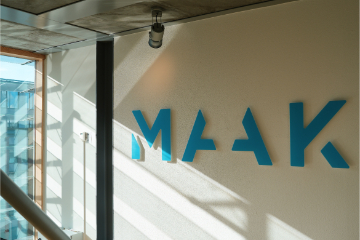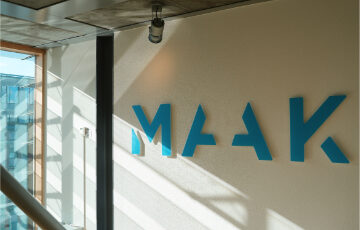
What Legal Requirements Must You Meet to Start a Business in the Netherlands?
Starting a business in the Netherlands requires compliance with specific Dutch legal frameworks that govern approximately 2.3 million active enterprises nationwide. International entrepreneurs must satisfy three fundamental criteria established by the Netherlands Chamber of Commerce (KVK): providing products or services, charging more than nominal fees, and participating in normal economic activities under Dutch jurisdiction.
Bottom Line: The Netherlands legal system mandates KVK registration, tax registration with Belastingdienst, and compliance with Dutch commercial law – processes that typically require 2-4 weeks with proper legal guidance from a Netherlands-qualified lawyer.
How Do Residence Permits Affect Your Dutch Business Formation?
Non-EU entrepreneurs face stringent Dutch immigration requirements before establishing businesses. The Netherlands offers two primary pathways: the self-employed residence permit utilizing a points-based system, and the innovative startup visa program launched in 2015. Consequently, approximately 65% of international business applications require specialized legal assistance to navigate Dutch immigration law successfully.
EU and EFTA citizens, however, benefit from freedom of establishment under European law. Therefore, German, French, or Belgian entrepreneurs can immediately register Dutch businesses without additional permits. Nevertheless, all foreign entrepreneurs must obtain a Burgerservicenummer (BSN) and establish Netherlands residency for business registration purposes.
Which Dutch Legal Structure Best Protects Your International Business?
Dutch company law recognizes two primary categories: incorporated entities (rechtspersonen) providing liability protection, and unincorporated structures exposing personal assets to business debts. Statistics from the Netherlands Commercial Register indicate that 78% of international entrepreneurs choose the Besloten Vennootschap (BV) structure for its liability protection and tax advantages.
Unincorporated Dutch Business Structures
Eenmanszaak (Sole Proprietorship): The simplest Dutch business form, requiring minimal capital but exposing personal assets to unlimited liability. Approximately 1.2 million Dutch businesses operate as eenmanszaken, making it the most common structure nationwide.
Vennootschap onder Firma (VOF): General partnerships under Dutch law where partners share unlimited joint liability. However, VOF structures offer flexible profit distribution and simplified taxation for international partners.
Incorporated Dutch Business Entities
Besloten Vennootschap (BV): Private limited companies providing complete liability protection with minimum share capital of €0.01 since 2012 Dutch legal reforms. Moreover, BV entities benefit from the Netherlands’ extensive tax treaty network covering 95+ countries.
Naamloze Vennootschap (NV): Public limited companies suitable for larger enterprises seeking Dutch stock exchange listings. Furthermore, NV structures accommodate complex international ownership arrangements under Netherlands corporate law.
Consider this example: A Canadian technology entrepreneur establishing a Netherlands-based software development company would typically choose a BV structure to access EU markets while protecting personal assets under Dutch limited liability provisions. Your Amsterdam-based legal counsel can optimize this structure for international tax efficiency.
What Documentation Does KVK Registration Require for Foreign Entrepreneurs?
The Netherlands Chamber of Commerce mandates specific documentation for international business registration. Dutch law requires authenticated identity documents, proof of Netherlands address, detailed business activity descriptions in Dutch translation, and payment of standard €50 registration fees.
International entrepreneurs must complete KVK forms available in English, though business activity descriptions require certified Dutch translation. Consequently, the registration process typically takes 5-7 business days with proper documentation. However, missing or incorrect documentation can delay registration by 2-3 weeks, emphasizing the importance of experienced Dutch legal guidance.
Statistics show that 43% of international KVK applications require additional documentation due to incomplete initial submissions. Therefore, engaging a Netherlands-qualified lawyer significantly improves registration success rates and reduces processing delays.
How Does Dutch Tax Law Impact International Business Operations?
The Netherlands tax system, administered by Belastingdienst, automatically registers new businesses following KVK registration. Dutch entrepreneurs benefit from competitive corporate tax rates: 25.8% for profits exceeding €200,000 and 20% for lower amounts as of 2024.
International businesses particularly benefit from the Netherlands’ extensive tax treaty network and participation ruling system. Moreover, the Dutch innovation box regime offers reduced 9% taxation on qualifying intellectual property income. Approximately 12,000 international companies utilize these Dutch tax advantages annually.
However, Dutch tax compliance requires meticulous record-keeping for seven years under Netherlands law. Furthermore, international entrepreneurs must navigate transfer pricing regulations and EU state aid rules. Your Netherlands tax advisor should structure operations to optimize these benefits while ensuring full compliance.
What Specific Legal Requirements Apply to Your Industry in the Netherlands?
Dutch sectoral regulations vary significantly across industries, with approximately 180 regulated professions requiring specific qualifications or licenses. Medical professionals, legal practitioners, and financial services providers face particularly stringent Netherlands licensing requirements under Dutch professional law.
Environmental regulations classify businesses into categories A, B, or C under Dutch environmental law. Category B and C enterprises must obtain environmental permits before commencing operations. Therefore, industrial entrepreneurs should engage environmental law specialists familiar with Netherlands permitting procedures.
Data protection compliance under Dutch GDPR implementation affects virtually all modern businesses. The Netherlands Authority for Personal Data (AP) enforces strict penalties reaching €20 million or 4% of annual turnover. Consequently, your Dutch legal team should implement comprehensive data protection strategies from business inception.
How Long Does Complete Dutch Business Formation Take?
Complete Netherlands business formation typically requires 3-6 weeks for international entrepreneurs, depending on chosen structure and complexity. BV incorporation through Dutch notaries averages 2-3 weeks, while eenmanszaak registration completes within 1-2 weeks after proper documentation submission.
Statistics indicate that 67% of international entrepreneurs underestimate formation timelines, particularly regarding banking relationships and permit applications. Therefore, experienced Amsterdam-based legal counsel proves invaluable for realistic timeline planning and efficient process management.
Consider beginning your Dutch business formation process 8-10 weeks before intended operations. This timeline accommodates potential delays, banking arrangements, and regulatory approvals while ensuring compliant launch under Netherlands law.
What Business Banking Requirements Exist Under Dutch Financial Law?
Dutch businesses must maintain separate business banking accounts under Netherlands commercial law. Major Dutch banks including ING, ABN AMRO, and Rabobank offer specialized international business banking services, though account opening typically requires 2-4 weeks for foreign entrepreneurs.
International businesses benefit from Netherlands participation in SEPA (Single Euro Payments Area), facilitating efficient European transactions. However, banks scrutinize international ownership structures under Dutch anti-money laundering regulations. Therefore, proper legal documentation and business substance prove essential for banking relationships.
Your Netherlands banking relationship should align with international expansion plans and tax optimization strategies. Consequently, coordinate banking selection with your Amsterdam-based legal and tax advisors to maximize operational efficiency.
What Insurance and Risk Management Strategies Does Dutch Law Recommend?
Dutch entrepreneurs assume significant personal and professional risks absent proper insurance coverage. Netherlands law mandates health insurance for all residents, while business liability insurance remains voluntary yet highly advisable for international operations.
Professional liability insurance proves particularly crucial for service-based international businesses operating under Dutch law. Moreover, business interruption insurance protects against operational disruptions affecting Netherlands-based enterprises. Statistics show that 73% of Dutch SMEs maintain comprehensive business insurance coverage.
Consider establishing comprehensive risk management strategies addressing Dutch-specific exposures. Your Netherlands insurance advisor should coordinate coverage with international operations and Dutch legal requirements to ensure complete protection.
How Can Experienced Dutch Legal Counsel Optimize Your Business Formation?
Navigating Netherlands business formation as an international entrepreneur demands specialized expertise in Dutch commercial law, tax optimization, and regulatory compliance. Amsterdam-based legal practitioners qualified under Netherlands Bar Association standards provide invaluable guidance throughout the formation process.
Professional legal assistance typically reduces formation timelines by 30-40% while ensuring optimal structure selection and regulatory compliance. Moreover, experienced Dutch lawyers identify tax optimization opportunities and regulatory pitfalls that inexperienced entrepreneurs commonly overlook.
Ready to establish your Netherlands business with confidence? Contact our Amsterdam-based legal team for comprehensive Dutch business formation guidance tailored to international entrepreneurs. Our Netherlands-qualified lawyers ensure compliant, efficient business establishment optimized for your global objectives.
Transform your international business vision into Dutch legal reality. Schedule your consultation with Netherlands business law specialists who understand both Dutch regulatory requirements and international business objectives.









